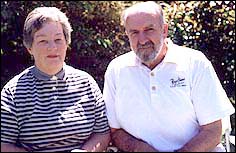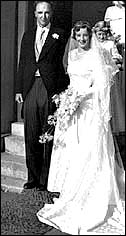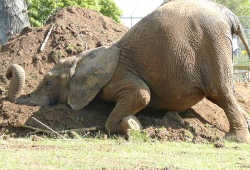Dorothy – 27/11/98
The story of two Mid-Canterbury farmers working together to build a productive farm from a neglected property at Dorie
An interview with Ron and Judith Armstrong
|
|
| Judith and Ron Armstrong |
Part 1 The years before Dorie Ron and Judith Armstrong gave their best energies and dedication for most of their working lives to their farm in Dorie. Judith came from a farming family; Ron’s passion for farming came from regular visits to friends on a farm in his childhood.
Judith’s farming family Judith Mclaughlin had farming in her blood with grandparents on both sides farming in New Zealand. Her McLaughlin grandfather worked at Longbeach and at the Camerons’ estate at Springfield in the days when there were over a hundred teams of horses on the farm. Later he developed his own farm at Irwell because he worked for the McMillans and was sold land by them. Often at that time farmers who sold some of their land lent money on mortgage to the purchaser. This happened less after the Depression when many second mortgages lent to assist farmers in difficulty were wiped by the Government in the Mortgage Relief Act, as lenders felt it was a less secure form of investment.M
The Irwell farm of 225 acres was always a borderline unit as it was created out of another farm. This land was taken over by Judith’s father and farmed in addition to land of his own. He and his wife built a little house of their own and expanded it as the family arrived. Judith’s grandmother lived on her own when she was widowed and continued to milk a cow every day until shortly before she died at the age of seventy seven.
Ron’s initation into farming Ron’s family had a large drapery business, T. Armstrong and Co, and a lot of country clients. His father had given into his father’s persuasions and had given up an ambition to go farming so that he could take over the business.
Ron was taken at the age of six to go duck shooting in North Canterbury at a friend’s farm. He was left there for a holiday and went there every holiday thereafter, and continued in his ambition to be a farmer.
When he left school he worked on a farm, but his father wanted him to train as an accountant and then join the business. He agreed to work for an accountant for a year provided he could choose to go farming at the end of the year if he still wanted to. After a year Ron’s view was unchanged. He did not want to work indoors all his life. He went farming in a number of Canterbury areas for five years to get varied experience on sheep, cattle and mixed cropping farms. He spent a year studying at Lincoln Agricultural College, Canterbury.
A range of experiences working as a farm hand He had a mixture of experiences. He was on one large North Canterbury sheep station in a swampy area at the confluence of the Pahau and Hurunui Rivers. There were fourteen employees – a wide range of personalities. The cook, an old Scotsman who had deserted from a ship some years before, drank whisky in great quantities. The weekend food was terrible but once the weekend bottle of whisky was finished the meals were good until he started the next bottle.
Bathing was a new experience. Instead of the daily bath to which he had been accustomed in the city Ron found that with the shortage of hot water they were allocated a bath once a week. The men reckoned that the cook had washed the dishes in the bath water before they got it. Luckily they bathed in near darkness as there was no electricity at that time, so they couldn’t see the water clearly. The rest of the time they had to wash with cold water out of the spring – and this was during a severe winter. They used to have to break ice an inch thick on the troughs for the cattle to drink. Because of the swampy ground there was always a fog until midday.
Lighting for the men’s quarters was from candles or oil lamps, but the main house had acetylene lighting. There were brackets on the wall with an acetylene gas supply. The gas came from an outside building where they put water on the acetylene powder, which they imported from America, producing a gas which was trapped and piped into the house, giving a very bright light.
Ron at this time was always the employee. At the large sheep station he was one of the group of fourteen, but at other times he was the only employee and had a greater range of things to do. He lived in a sleepout, often primitive. One was actually in the toolhouse, and another was attached to the toolhouse and birds flew in and out. One night he woke up scratching himself and later found that birds had nested above his bed and the bird lice were falling through the match lining on to his head and his pillow.
Not an easy life, but not a deterrent If Ron’s family thought that the tough life might put Ron off his farming ambitions, they were wrong.
Purchase of the farm He was looking for a farm when post-war rehabilitation was at its peak and would-be farmers had to go in a ballot for farms. There was also operating at that time a Land Sales Court which governed the price of farms. Any farm that came on to the market had to go before the Land Sales Court set up in 1943-44 and be valued. This had the effect of suppressing the land price. The returned servicemen were put on the land and given low interest loans by the Government. The low prices meant less cost to the Government. Ron’s father could see that sooner or later the Land Sales Court would be abolished and with the free market the prices would soar. He advised Ron to start looking for a farm and put him in touch with a suitable land agent. He settled on buying a farm of 774 acres at Dorie and lived there for thirty eight years.
|
|
| Ron and Judith on their wedding day |
Judith and Ron meet. Meanwhile Judith had trained as a schoolteacher and accepted an appointment to teach in a country school near her home at Irwell. Ron was working on a farm at Irwell. While there she and Ron met and they married and settled into farming at Dorie a year after he bought the farm in 1952.
Marrying and settling on their own farm sounds like the American Dream, but the life they embarked on was far from easy.
Read Part 2 to find out what awaited them on the farm.






